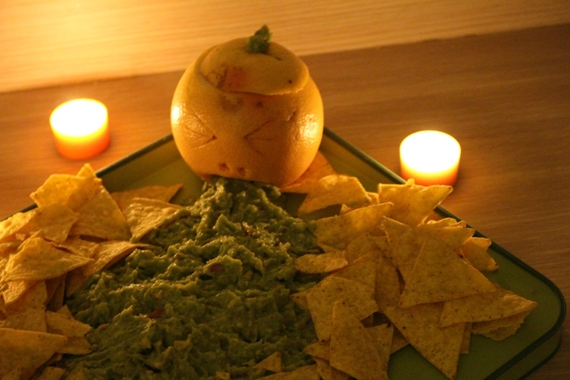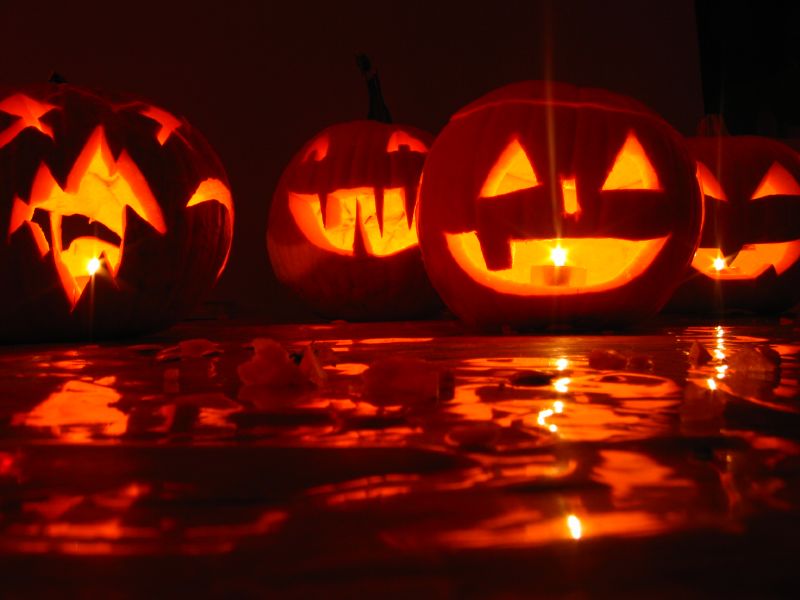Dutch Halloween! Posted by Sten on Nov 1, 2015 in Culture
Halloween has been widely around in the Netherlands since the 1990s. The celebration has been imported from the United States, and thus has more of a commercial character, instead of a deeply rooted cultural one. Shops specialized in costumes and dressing up love it, since Halloween allegedly fills up the niche between the summer and Christmas. Halloween is especially popular in the northern parts of the Netherlands, that is to say, those parts that do not celebrate Carnival, which starts to be celebrated on the 11th of November, at 11:11 AM.
The word “Halloween” comes from All Hallows Eve, which is translated in the Netherlands to Allerheiligenavond. In churches, this day is used to remember the dead, and to clean the graves of passed away ancestors.
Trick or Treat
The American tradition of children going around houses asking for candy is not that widespread yet. It happens here and then, more in an organized manner than with every house on the way. This is most likely because there is also Sint Maarten, a celebration based on Sint Maarten, where children go around houses – also dressed up, but not only in spooky fashion – and sing a song and get candy in return. Like the Jack-o’-Lanterns are the principal feature of Halloween, Sint Maarten is characterized by the lampionnen (lanterns) the children carry. I used to do this as well when I was younger, and it is a lot of fun – and lots of candy!
Halloween Parties
Much more widespread are Halloween parties or tours. Many clubs organized theme parties every month already, and Halloween fit right in there in October or November. The 31st of October is not such a fixed date – such theme parties are often organized around the date, on a night that is suitable for a party that will attract a lot of people. And this works better and better – Halloween is growing a lot in popularity!

Of course, with that comes Halloween food, as for example this sick grapefruit, that vomited delicious guacamole!
Fun Parks
Also in fun parks, most notably Walibi Holland, Halloween is celebrated. During the Halloween Fright Nights, Walibi Holland is sold out! This year’s theme is “There’s no escape…”
De Griezelbus
Of course, also in the Netherlands, books and movies made their impact to popularize Halloween. Examples include Harry Potter, and De Griezelbus, which is a Dutch children’s book series written by Paul van Loon.
Controversy
In the Netherlands, there are certain organizations and churches that reject Halloween, because it has a “heidens karakter” (pagan character). For example, in Bunschoten, a very Christian village in the Netherlands, a Halloween party was cancelled in order to “respect the religious affiliation”.
Do you celebrate Halloween where you live? Why? And how?
If not, are there other celebrations that you enjoy?

Build vocabulary, practice pronunciation, and more with Transparent Language Online. Available anytime, anywhere, on any device.
About the Author: Sten
Hi! I am Sten, both Dutch and German. For many years, I've written for the German and the Dutch blogs with a passion for everything related to language and culture. It's fascinating to reflect on my own culture, and in the process allow our readers to learn more about it! Besides blogging, I am a German-Dutch-English translator, animator and filmmaker.





Comments:
Lawrence Swaim:
Yes, the Episcopal Church in the US does sometimes celebrate All Hallows Eve–there’s even a special liturgy for it in the prayer book. It’s a good opportunity to think about those people one once knew and perhaps loved who have died.
Does anybody know where one can get a dictionary of Jersey Dutch? This was a language spoken in New Jersey in the late 17th century, consisting of the Dutch language and the language of the Lenni Lenape tribal people who lived in that area. It allowed the Dutch and tribal groups to communicate well, since it had progressed beyond just being a dialect and was a very nuanced language.